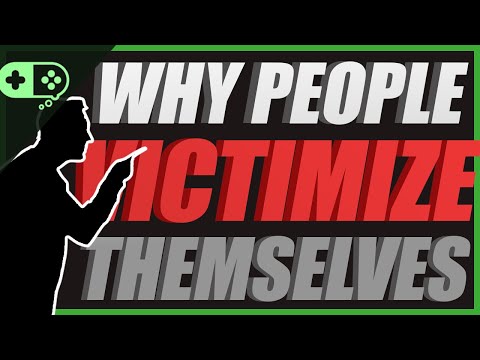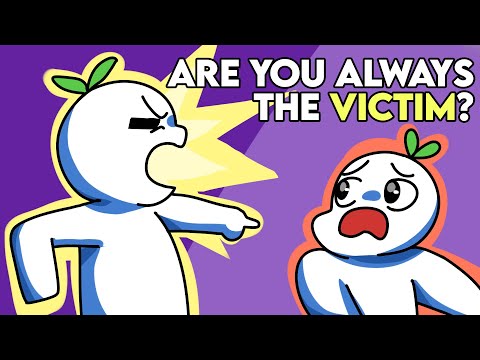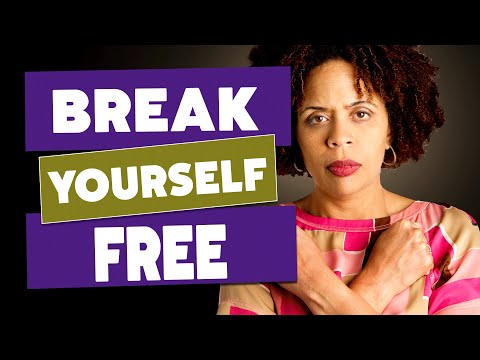
In the rugged journey of self-improvement and fitness, victim mentality stands as an invisible barrier that can thwart your success. When people see themselves as victims of their circumstances, they feel powerless and often blame external forces for their setbacks. This psychological state deeply influences how one tackles challenges and can hinder both personal and professional growth. Let’s shed light on how victim mentality manifests in examples like the bystander effect, alienation, and even parental alienation. Understanding these connections can reveal the destructive implications on achieving success and building the body of your dreams.

Understanding Victim Mentality: The Invisible Barrier to Success
At its core, victim mentality is like a weight on your shoulders. You feel dragged down, believing you’re unable to change your circumstances. This mindset not only zaps your energy but also clouds your vision of what success looks like. If you’ve ever felt that the universe is out to get you, it’s time to break free. Consider those who struggle through life’s challenges without realizing they hold the key to their transformation. They often fail to see that taking ownership of their lives could lead to an incredible metamorphosis—much like how Zac Efron before And after working out truly showcases the power of a transformed mindset and body.
The bystander effect adds another layer of complexity to this mindset. Have you ever found yourself in a situation where someone needed help, but everyone else just stood around? This social phenomenon reflects a passive approach to problem-solving, leading to stagnation. In a similar vein, those crippled by victim mentality sit back, waiting for someone else to initiate change, often believing they can’t influence their outcomes. Picture an office filled with talented individuals who are stuck in mundane roles simply because they’re unwilling to take charge. When they cast blame instead of taking action, they squander opportunities to shine.
Then there’s the issue of alienation. Individuals with a victim mentality often express their struggles without seeking solutions, which can push friends, coworkers, or loved ones away. This dangerous cycle diminishes the chances of valuable networking or collaboration that’s essential for both personal and professional growth. Moreover, many studies indicate that frequent expressions of victimhood contribute to feelings of isolation, ultimately stunting one’s potential.

Top 7 Ways Victim Mentality Impedes Personal Growth
Blaming everyone else but yourself? That’s the hallmark of victim mentality. You might think your oppressive workplace or biased management are the primary culprits behind your struggles. For instance, consider individuals at Uber during its cultural crisis. Many employees fell into this blame-centric mindset, overlooking opportunities to learn and grow. By refusing to hold themselves accountable, they missed critical chances for development.
Just like the tragic case in the workplace during the 2008 financial crisis, when employees felt powerless, many lost their jobs due to unethical practices. Instead of stepping up, they succumbed to the bystander effect, waiting for someone else to drive change. This passivity not only damages their career but hampers their self-worth. So, why not take a different route? Be the one who takes action, rather than waiting for others.
When you constantly vent about your struggles without proposing solutions, you alienate peers. Studies from the Journal of Social Issues show that those who frequently portray themselves as victims can push people away, missing out on crucial support. Networking is vital, especially in the fitness world. If you’re always the downer, you’ll soon find yourself standing alone at the gym, and that’s not where the transformation happens.
Individuals who faced parental alienation can carry unresolved baggage into adulthood. They may see themselves as scapegoats in difficult family dynamics, even extending this lens to professional relationships. The American Psychological Association highlights the importance of recognizing these patterns to break the cycle. Learning to recognize and let go of this past can lead to healthier relationships and a boost to your mental fortitude.
Facing verbal abuse, whether in family life or at work, can root a victim mentality deep into your psyche. Take the case of Ellen Pao’s lawsuit against Kleiner Perkins, which spotlighted how toxic workplace cultures stifle individuals. The workforce’s morale can plummet under such conditions, leading to victim thinking. Break free and stand strong. No one deserves to be verbally beaten down, and your path to empowerment lies in self-respect.
Let’s talk about decision-making, shall we? A victim mentality often leads individuals to shy away from taking risks, paralyzed by the fear of failure. This is especially profound within the startup sector. Founders who see themselves as victims may let pivotal opportunities slip away due to inaction, leading to stagnation in innovation. Don’t let fear define your choices; instead, embrace every chance you get to move ahead.
Ready to flip the script? Shifting your perspective requires commitment and effort. Cognitive-behavioral techniques can redefine your negative thought patterns. Look to inspiring figures like Oprah Winfrey, who transformed adversity into opportunity. Her story resonates with many, showcasing how you can overcome your past and embrace empowerment.

Embracing Responsibility: The Path to Empowerment
Transformation starts with embracing personal responsibility. Owning up to your reactions and choices isn’t just liberating; it’s a step towards your goals. Yes, external circumstances can be challenging, but how you choose to respond defines your success. Transitioning away from a victim mentality lays the groundwork for continued personal growth and achievement.
Once you drop the weight of victim mentality, you cultivate resilience and set yourself on an adventurous journey toward goal achievement. Embrace accountability, and turn those setbacks into setups for comebacks. Remember, every successful bodybuilder, every athlete, every rise-to-the-top individual you admire made a choice to own their narrative rather than play the victim. It’s your turn to choose power over passivity and turn those struggles into stepping stones.
Take action today—because you’re capable of greatness. On the path to success, always keep in mind: the only limits are those you set upon yourself. So, step up, own your story, and let’s get shredding!

Understanding Victim Mentality: Insight & Fun Facts
In life, adopting a victim mentality can really hold you back. It’s fascinating to see how this mindset can hinder personal growth and success. One interesting fact is that people often don’t realize they have a victim mentality until they start reflecting on their responses to challenges. This form of thinking often stems from personal experiences or societal influences, much like the impacts of the “symptoms of covid 2025” where individuals felt powerless against something beyond their control. A little twist here is that this mindset can also seep into our daily conversations, giving us a tendency to think of ourselves as the main character. Just like the intriguing dynamics of the cast of Power Book 2, our narratives shape the way we engage with the world around us.
You’d be surprised at the strong correlation between how we think and our overall success. Remembering to combat those thoughts with positivity can pave the way for better outcomes. For instance, consider how “kickback” sessions with friends can lift your spirits and shift your mindset. While we might lean into comfort zones, we often forget that stepping beyond them is where real magic happens. Similarly, just as conversations may delve into light-hearted topics like abc movies, we can uplift our own stories and change the narrative we tell ourselves.
It gets even deeper, as some folks might not even realize the long-term effects of such a mindset. Much like the way piracetam enhances cognitive function, shifting away from a victim mentality can dramatically improve mental clarity and resilience. Additionally, if we reflect on life’s tougher challenges, like dealing with miscarriage blood, it’s essential to address our feelings without letting them define who we are. Ultimately, letting go of victim mentality doesn’t come overnight; it requires a shift in how we approach our experiences. So, whether you’re swinging into action like in the Spider Man 2 game or trying to cope with life’s hurdles, remember: how you perceive your challenges can change your trajectory toward success!



























